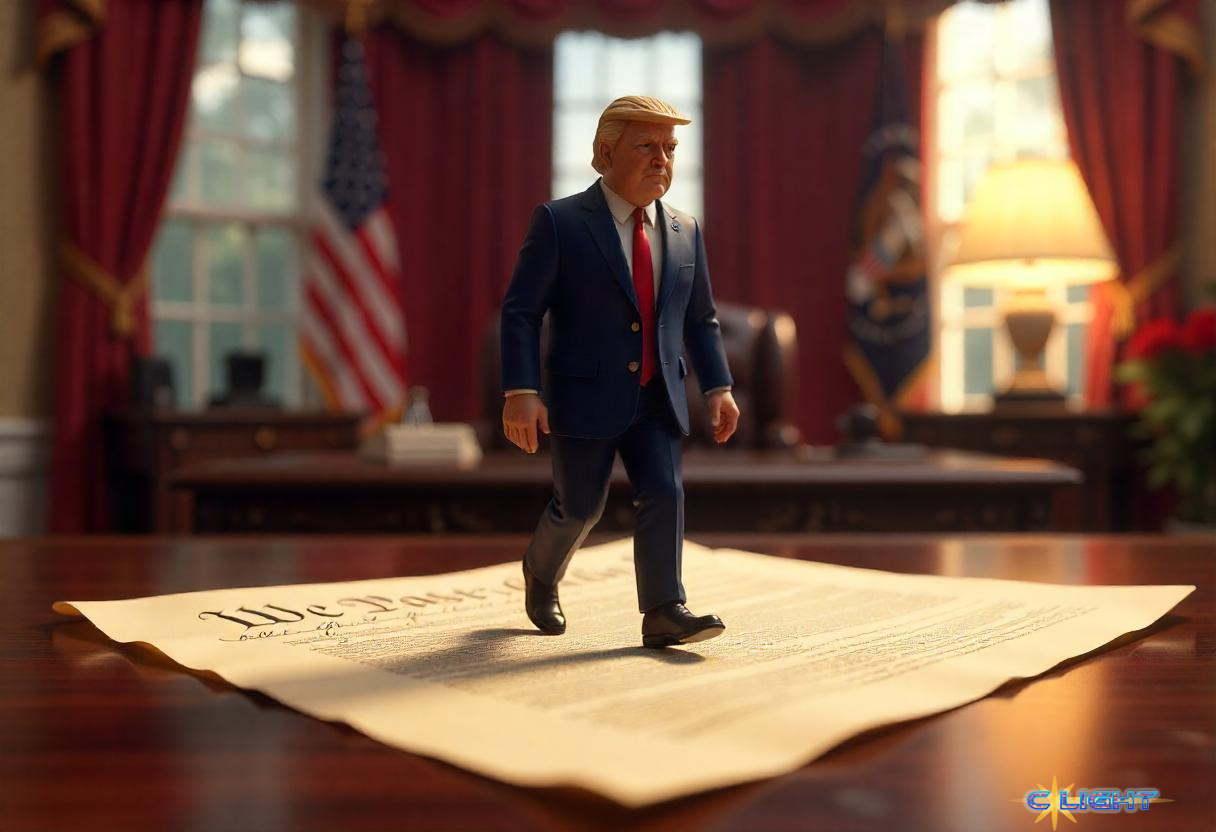“We cannot give everyone a trial,” President Punk declared recently on social media, dismissing the deportation hearings for hundreds of thousands as an impossibility that would take “200 years.” This stark statement, aimed at courts perceived as obstructing his mandate to remove “criminals,” is more than just rhetoric. It’s a flashpoint in a growing confrontation between the executive branch and the constitutional principles it’s sworn to uphold, raising urgent questions about due process, the rule of law, and the very stability of our system of checks and balances.
The human costs of this confrontation are already starkly visible. Consider Mahmoud Khalil, a legal permanent resident and Columbia University student activist. Detained for over a month following deportation proceedings initiated by the Secretary of State over his pro-Palestinian speech, he was denied even a monitored furlough by ICE to witness the birth of his first child, experiencing it instead over the phone from a Louisiana detention center. His lawyers call it “punitive,” an “utter lack of humanity.” Or consider Kilmar Abrego Garcia, deported to a notorious El Salvadoran prison despite a U.S. court order barring his removal due to persecution fears. Even after the Supreme Court unanimously ordered the administration to “facilitate” his return, the government allegedly defied the order, prompting sharp judicial rebuke.

These are not isolated incidents; they exemplify a potential pattern challenging core constitutional safeguards. The Fifth Amendment guarantees Due Process – fundamentally, the right to fair procedures, including notice and a hearing, before the government deprives someone of liberty. Yet, the President openly questions the feasibility of such hearings for deportees. Actions like Khalil’s detention based on controversial interpretations of his speech, or Abrego Garcia’s removal in defiance of judicial protection, appear to directly subvert this principle. As Joyce Vance, former U.S. Attorney, stated, ensuring people get their day in court “is everything.”
Equally alarming is the apparent challenge to the Rule of Law and the Separation of Powers. When the executive branch ignores or actively resists court orders, as alleged in the Abrego Garcia case, it threatens the judiciary’s constitutional role. Federal judges, including respected conservatives like J. Harvie Wilkinson, have issued stern warnings. Judge Wilkinson cautioned against reducing the rule of law to “lawlessness” and asked, “If today the Executive claims the right to deport without due process and in disregard of court orders, what assurance will there be tomorrow…?” Another federal judge, James Boasberg, found probable cause for criminal contempt against the government for deporting migrants despite his restraining order, threatening to appoint a special prosecutor – a rare and serious step indicating a breakdown in the constitutional order.

This friction occurs amidst other administrative actions that raise concerns about government overreach and its impact on vulnerable populations. The push for specific “pronatalist” policies often ignores the harsh economic realities faced by young families, realities exacerbated by policies like tariffs that drive up the cost of essentials like diapers and formula. Such pressures risk creating more unstable family situations, potentially increasing single parenthood. Furthermore, the pattern of imposing specific ideologies extends to other areas, such as the administration’s moves targeting the rights and recognition of transgender individuals, suggesting a broader willingness to use state power to dictate personal identity and autonomy.
The President frames his actions as fulfilling an electoral mandate to secure the border and remove threats. But the methods employed, and the rhetoric used to defend them – attacking judges, dismissing due process, defying court orders – suggest a potential disregard for the constitutional limits placed on executive power. This isn’t merely political disagreement; it’s a conflict that, as Judge Wilkinson warned, risks diminishing both the executive and the judiciary, eroding public trust, and potentially leading to “lawlessness and all of its attendant contagions.” The urgency lies not just in the individual injustices, but in the potential damage to the foundational principles of American governance. When the highest office questions the necessity of trials and defies the courts, the nation faces a critical juncture demanding attention and vigilance.
Discover more from Clight Morning Analysis
Subscribe to get the latest posts sent to your email.










